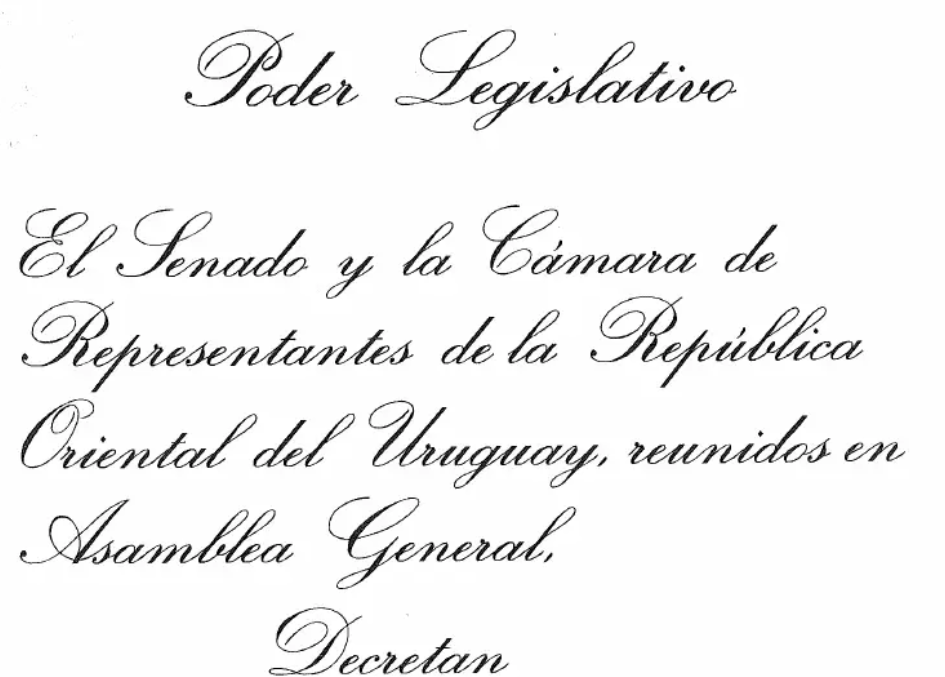
Uruguay is making the headlines these days for its outstanding management of the COVID-19 pandemic. The first case hit Uruguay just 13 days after President Lacalle Pou’s centre-right coalition government took office, therefore demanding all the attention and the resources that ideally would have been placed somewhere else. After managing the first months of the crisis successfully, the government went back to pushing one of its most controversial yet firmer campaign promises: the approval in parliament of the “urgent consideration draft bill” (“ley de urgente consideración”, or LUC). The law is now a reality, and it constitutes a roadmap for the current administration, as analysts say, as well as a political achievement for the coalition.
The rather lengthy final document, which you can read here, contains 476 articles relating to issues such as security, financial inclusion, education and state-owned companies, to name just a few. The far-reaching law will be complemented by decrees in due course. Opponents (mainly from the left-wing Frente Amplio, which ruled the country the 15 years before Lacalle Pou took office and who have just lost their parliamentary majority to the coalition) consider the LUC too “neoliberal” (that in Latin America means “bad”, by the way), while many that had been supporting it since its inception think the final bill passed lacks depth and disappoints in some aspects. The price of consensus, that is.
Here we sum up, with the technical contribution of our trusted legal and accounting practice, Irrazabal & Asociados, some of the main points for foreign exporters and investors doing or thinking about doing business with Uruguay.
One specific change related to labour law is pretty revolutionary for Uruguay. Basically, workers will be granted the right to enter their workplace even if there is a strike on – Uruguayan trade unions were known for blocking access to workplaces during strikes, which meant that a small number of striking workers could prevent the majority of their colleagues from working, something that had infuriated both non-unionised workers and their employers. “This is the biggest achievement of the law, protecting the right to work. If someone decides to go to work when there is a strike on, the law now protects them”, sums up solicitor Pablo Diaz, legal specialist at Irrazabal & Asociados, “occupying a workplace constitutes not only an attack to the business but an attack to the freedom and the rights of those who want to work – by far the greatest accomplishment of the LUC is to guarantee these rights and freedoms”, he adds.
We get often approached by companies in energy, agrifood and other sectors that are closely tied to the environment. For them, it will be relevant to highlight that the LUC creates an Environment Ministry. As Gonzalo Irrazabal, specialist solicitor in corporate and energy law at Irrazabal & Asociados explains, before the LUC, the Housing and Environmental Ministry was in charge of environmental issues. The purpose of splitting up this ministry is to provide independence and self-determination to a new authority focused solely on the environment. Uruguay is well-known for its advanced environmental legislation and its care of the environment, which also give it a huge competitive advance in supply chains such as beef and forestry.
In relation to utilities, Gonzalo explains that “the law amends give more powers and more independence to the energy and water regulator and to the telecommunications authority. Also, changes equip these bodies with more tools to enforce regulations.”
Another hugely important change the LUC brings about affects the financial sector. The financial inclusion law that Uruguay passed in 2014 was not popular with everyone. One of the clearest promises from the now ruling party during the campaign was to make changes to give people more flexibility to use cash if preferred. Before the LUC was passed, for example, transactions over USD 5,000 had to be paid electronically – that is no longer the case. Salaries do not need to be paid electronically anymore, either.
As you can imagine, with nearly 500 articles, there are other aspects worth looking at, such as changes to education sector governance, setting of fuel prices, and pension reform, to name a few. If you would like more advice on these changes and how they can impact your business in Uruguay, get in touch.
